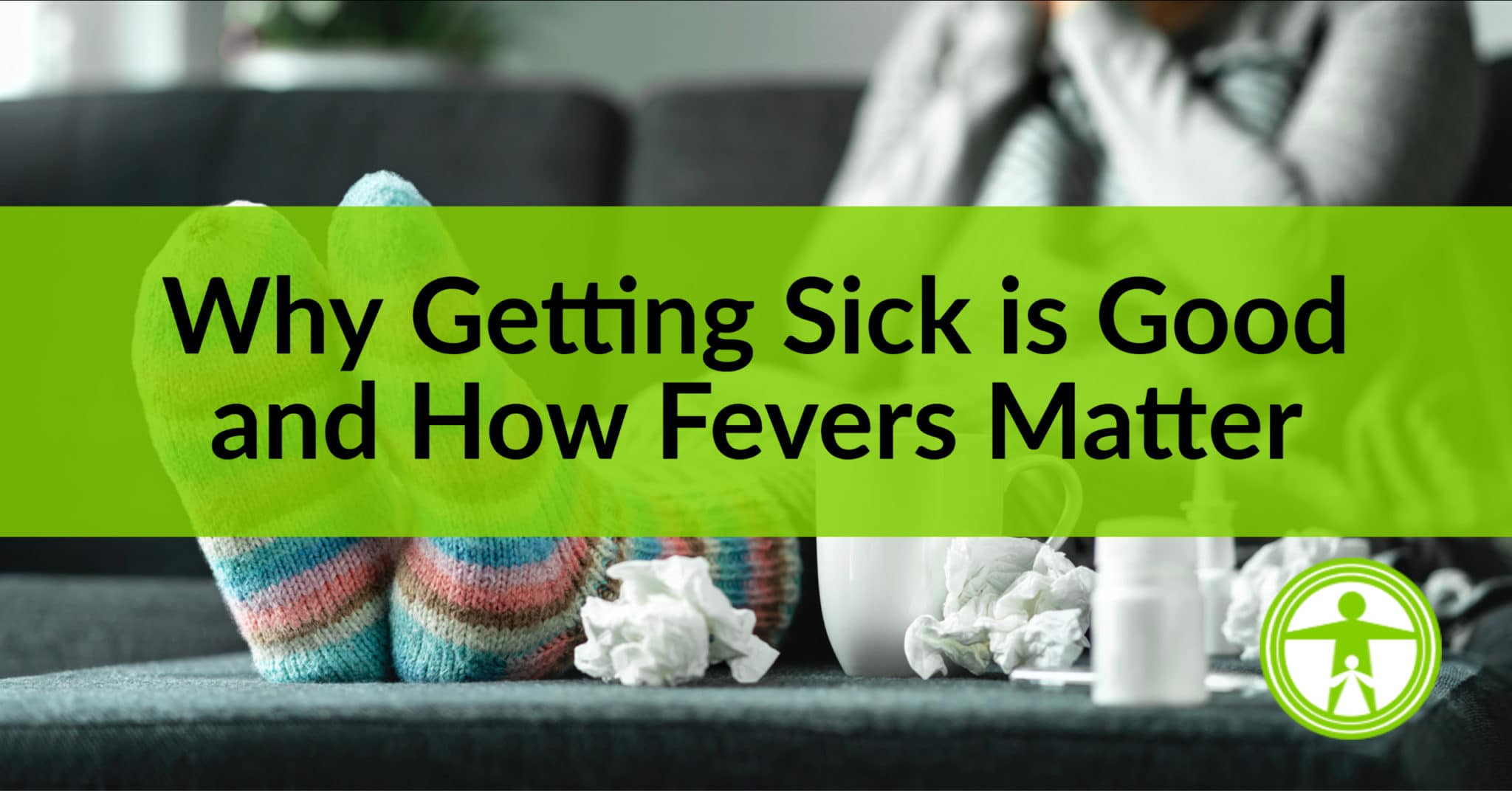To Get Sick, is Human
Why are we so shocked and upset when we, or someone we love, comes down with a sickness?
Why are so many people scared of bacteria and viruses and get so panicked about germs, they start doing crazy things like buying up all the face masks?
A strong, healthy body is responsive to its environment.
When you experience a cough, a runny nose, achiness, fever and chills – these are all signs that your body has detected a pathogenic (harmful) invader and it is responding appropriately.
Each of these is a mechanism that your body has evolved to fight infection.
For example, a sneeze is the body’s way of expelling, or, pushing out, an irritant.
Vomiting is a way to clear our digestive system from something harmful.
Fever initiates a cascade of events that leads to seeking and destroying viruses.
Today, we now know that there are two major kinds of diseases: infectious and non-infectious.
Infectious diseases are caused by pathogens such as bacteria, viruses, fungi and parasites.
These pathogens can enter the body through the air we breathe, the food and drink we consume or through openings in the skin, such as cuts.
Not every pathogen that enters the body results in illness because our bodies come equipped with immune systems to fight off foreign agents.
That is of course, if you've done the right homework to build a healthy immune system – one that is responsive and that hasn't been blunted by any external (i.e. antibiotics or fever reducers) means.
Why A Fever is Important
Fevers are more than just a symptom of illness or infection.
Fevers result in an elevated body temperature that sets in motion a series of mechanisms that regulate our immune system.
To halt or interfere with this process is like interrupting calculus class when you're just about to learn the most important step in solving the equation.
When we are healthy, our body temperature tends to hover around 98.6°F (37°C ).
But when our bodies are faced with an infection such as a virus, our body temperature should go up and we experience fever.
A low grade fever would be 100°F, whereas a high grade fever is anything greater than 103.5°F.
When we have the flu, for instance, we may come down with a mild to high and somewhat uncomfortable fever (anything between 100° – 103.5°F) which can be nerve wrecking.
As a general rule, when your fever is higher than 103.5° for longer than 30 minutes, then consider using a mild fever reducer.
What's important to understand here is that fevers aren't always a bad sign; but a good indication that your immune system is doing its job.
It's also important to understand that fevers are simply a byproduct of getting sick, but a direct safety mechanism of the immune system.
An elevated body temperature triggers cellular mechanisms that ensure the immune system takes appropriate action against the offending virus or bacteria.
But if you interfere with this process, then you are preventing your immune system from learning and even causing a greater risk for future infections.
Our Body has Temperature-Immune Sensors
A signaling pathway called Nuclear Factor kappa B (NF-κB) plays an important role in the body's inflammation response in the context of infection or disease.
NF-κB are proteins that help to regulate gene expression and the production of certain immune cells.
These proteins respond to the presence of viral or bacterial molecules in the body, and that is when they start switching relevant genes related to the immune response on and off at a cellular level.
Dysregulated NF-κB activity has been linked with the presence of autoimmune diseases such as psoriasis, Crohn's disease, and arthritis.
Researchers note that NF-κB activity tends to slow our body temperature lowers. But when body temperature is elevated over the usual 98.6°F, it tends to become more intense.
This is why fevers tends to spike at night.
With a lower than average body temperature at night, the viruses tend to come out and play. But during the day, overall body temperature is elevated and the opposite is true.
Now our biological clocks regulate our internal temperature and determine mild fluctuations — of about 1.5°C (34.7°F) at a time — during wakefulness and sleep.
So, the lower body temperature during sleep might provide an explanation into how shift work, jet lag, or sleep disorders also cause increased inflammatory disease and dysfunctions.
This is also why sleep disturbance is linked to decreased immunity!
Fever Reducers Blunt Immunity
As we've already discussed, fever isn’t an illness – but a biological defense mechanism.
It’s the body’s attempt to fight illness.
So when we treat fever with antipyretics, such acetaminophen (Tylenol) or ibuprofen, we severely blunt an important part of our immune response.
Although it might seem counter intuitive, several studies have now shown that antipyretics increase the severity of infections.
I can't say this enough: it's time to get over our fear of fever.
Nobel Prizes, animal studies and human studies have all demonstrated the positive effects of fever.
These studies were even performed in children!
And the results have been consistent:
- Antipyretics prolonged the excretion of salmonella bacteria in people suffering from this intestinal infection.
- Children with bloodstream infections (sepsis) or pneumonia were more likely to die if their temperatures were lower.
- Antipyretics prolonged symptoms in patients infected with influenza.
- Antipyretics prolonged viral shedding and worsened symptoms in volunteers experimentally infected with a common cold virus called rhinovirus (PDF).
- Antipyretics delayed the resolution of symptoms in children with chickenpox.
Consistent with these clinical observations, recent studies have shown that at higher temperatures, white blood cells (neutrophils), B cells, and T cells work better.
Why does that matter?
Neutrophils kill bacteria. B-cells make antibodies that neutralize viruses and bacteria. And T cells kill virus-infected cells.
Why Are We So Fever Phobic?
Given all of this information, why are we so intent on treating fever?
Why are we so fever-phobic?
The most common reason is that we feel more comfortable when our temperature is normal.
But feeling more comfortable is not necessarily better when you're body is raging war internally.
I don't know about you, but I wouldn't be so calm if someone in my neighborhood was going around murdering everyone! I certainly wouldn't want to shut down the defense system.
We assume that if we lessen fever than we have lessened the degree of illness, but the opposite appears to be true.
Another reason is the fear that high fevers can cause brain damage—a concern that hasn’t held up to scientific scrutiny.
Just so you know, brain damage from a fever generally will not occur unless the fever is over 107.6°F (42°C). And untreated fevers caused by infection will seldom go over 105°F (40.6°C).
Another reason is the idea that treating fever will prevent febrile seizures, a phenomenon that while frightening, doesn’t cause permanent harm. As it turns out, fever reducers don't even prevent febrile seizures.
But probably the most common reason for treating fever is that we feel more comfortable when our temperatures are normal.
Fever increases the basic metabolic rate, causing us to breathe faster and our hearts to beat faster.
When we have fever all we want to do is lie in bed and drink fluids, which is exactly what we should be doing instead of going to work or school and infecting others.
Fever is a sign that we should isolate ourselves from the herd, not medicating ourselves so we can go back and join the party.
Pharmaceutical companies haven’t helped with this either.
With ads like “Let’s get that temperature down!” or “Just what the doctor ordered,” we are constantly bombarded with the notion that fever is bad and must be reduced or eliminated.
In closing, Hippocrates, who lived around 400 B.C., had it right.
He believed that a fever was essential to healing and it cooked whatever was causing our problems.
Then, in 1899, the German company Bayer invented aspirin. And all of a sudden it became important to treat fever, popularized by the advice, “Take two aspirin and call me in the morning.”
In retrospect, we should have listened to Hippocrates.



